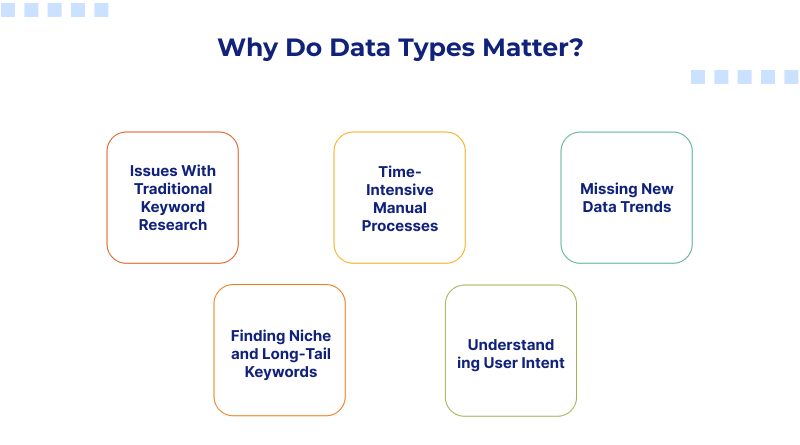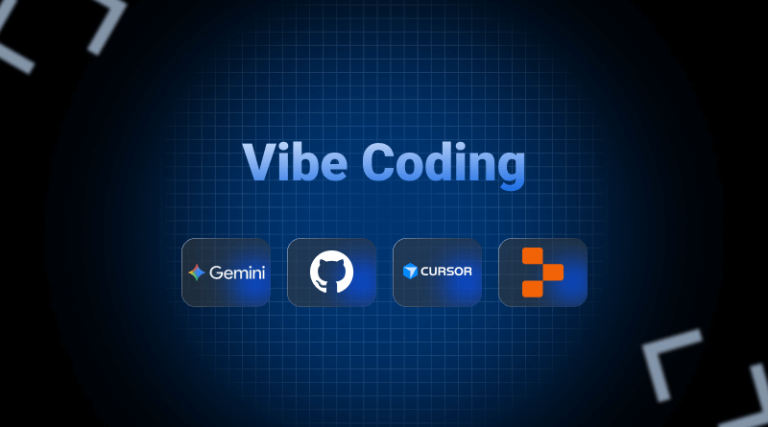Are you investing countless hours trying to use complicated SEO tools and sifting through endless spreadsheets of keywords?
Before you choose the best web hosting provider, it is important to perform intensive keyword research. This is an important step irrespective of whether you are a beginner or a seasoned marketer. One thought you, along with various users, might think is, “There must be an easier way to find the right keywords without burning out.”
Well, yes. There is The easiest way called “ChatGPT keyword research prompts.” Keyword research with ChatGPT is a way to gain immediately actionable insights, get ahead of competitors, and even spend half the time doing research, all while working remotely and on a budget.
While a lot of people know ChatGPT as a content writing assistant, it also has immense potential for SEO professionals and content creators. With the right prompts, ChatGPT can assist you as the perfect partner for that research and help you:
- Identify high-value, low-competition keywords.
- Identify the real underlying search intent behind terms.
- Help in brainstorming long-tail keyword variations.
- Generate topic clusters.
- Simulate keyword strategies of competitors.
By the end of this post, you too will know how to use ChatGPT for keyword research with a toolkit of impactful prompts for instant and effective results.
Table Of Content
Why ChatGPT Keyword Research Prompts?

– Issues With Traditional Keyword Research
As one of the most important aspects of SEO, keyword research has always been important. But let’s be frank here; the traditional workflow is not ideal. Even with the best tools available, you are bound to run into issues such as
– Time-Intensive Manual Processes
Exporting countless spreadsheets across tools, switching between different platforms, and evaluating keyword metrics manually is bound to take several hours.
– Finding Niche and Long-Tail Keywords
Most tools tend to display a limited range of high-traffic and competitive keywords. Finding less competitive long-tail variations is often guesswork and requires a lot of digging.
– Understanding User Intent
A keyword can tell you a lot about why someone is searching but does not tell you everything. Understanding and decoding a query as informational, transactional, or navigational often requires context clues, which can be hard to come by.
– Missing New Data Trends
Most SEO tools depend on historical data. If a trend takes too long to register, it might already be too late. Predictive thinking is crucial for staying ahead or being the first adopter.
How ChatGPT For Keyword Research Helps?
ChatGPT might not replace your standard go-to SEO tools, but it will enhance the way you are using them. Using proper prompts, ChatGPT can act as a highly flexible brainstorming assistant that helps in scaling keyword research more efficiently.
| Capability | What It Means for You |
| Speed and Efficiency | Create keyword sets, theme clusters, and mind maps instantly—cutting research hours in half. |
| Unmatched Idea Generation | Serves as a creative collaborator, proposing new keyword directions, alternatives, and subject concepts. |
| Semantic and Intent Understanding | Aids in revealing the “why” of user searches, enhancing content accuracy and alignment. |
| Preliminary Content Gap Identification | Examines test content or SERP clips to determine likely gaps competitors overlook. |
| Scalability Across Projects | Allows easy duplication of processes across various blogs or niche sites in an efficient manner. |
The “How-To” ChatGPT Keyword Research Prompts Guide
Simple queries are not enough to unlock the full potential of ChatGPT for keyword research. The process of prompt crafting requires skill and strategy. With more useful and targeted instructions, the output will be more useful.
Let’s explore the critical concepts and elements of effective SEO prompts, particularly focusing on SEO.
Core principles for conducting keyword research with ChatGPT:
1. Specificity
Generic results are the aftermath of vague prompts. Detailed instructions maximize relevance and value, resulting in better outcomes. Specify the intent: Generate images through ChatGPT prompts. “Give me keywords” can be improved to “Generate 10 long-tail keywords for a blog targeting beginner yoga practitioners interested in stress relief.”
2. Personas
ChatGPT generates content marked by a specific tone and quality based on defining prompts. For instance, “Act as an experienced SEO specialist…” sets the tone of the AI output. “You are a content strategist working on eCommerce product descriptions…” is also a valid prompt.
3. Circumstantial Information
Assuming that ChatGPT knows your niche as deeply as you do is wrong. Generate better results by providing information regarding your business model, audience, product/service, or existing content.
4. Specify Output Formats
Aim for a specific output like bullet points, tables, clusters, or even Q&A frameworks to make the data easier to analyze and use.
5. Iterate and Refine
To focus on a new direction or improve clarity, you might need to rerun or rephrase prompts. For example, “Provide more B2B focused keywords” or “keywords with a more casual, conversational tone, please.”
6. Use Follow-up Prompts
Responding to prompts in a chain is highly effective. Build off prior responses: “Group these keywords by user intent” or “Add more niche variations to cluster 2.”
ChatGPT Prompts For SEO keywords: Key Elements to Include
Be as precise as possible and add these elements to your prompts to guide ChatGPT:
– Task
What would you like ChatGPT to accomplish?
Examples include generating keywords, analyzing intent, or suggesting questions users are likely to ask.
– Topic or Niche
Provide the precise area on which you intend to focus.
Examples would include sustainable fashion, AI website builder tools for solopreneurs, and eco-friendly packaging.
– Target Audience
This helps in striking the right tone and relevance.
Examples would include small business owners, Gen Z consumers, and SaaS marketers.
– Desired Outcome
State your expectations on how the final output should look.
Examples include “10 long-tail keywords with commercial intent,” “table of keyword clusters sorted by topic,” and “info-based search queries turned into FAQs.”
– Constraints or Exclusions
Add boundaries to refine results.
Examples: “Exclude branded terms,” “Avoid overly competitive keywords,” and “Focus on transactional intent only.”
ChatGPT Keyword Research Prompts for Every Stage
Prompt 1: Broad Topic Ideation
- “Act as an SEO content strategist. Come up with 10 broad topic ideas for a blog about [Your Niche] based on search demand.”
- Use case:
- Useful for the very first phase of planning or developing pillar content strategies.
Prompt 2: Expanding Keywords Scoped
- “Based on the seed keyword ‘[Your Seed Keyword],’ list 20 related keywords, including their synonyms and versions that users are likely to search for.”
- Use case:
- This is best for augmenting an initial keyword pool or expanding a keyword inventory for SEMrush or Ahrefs.
Prompt 3: Target Audience Sourced Ideas
- “I have a blog on [Your Niche/Industry]. Suggest 15 organic blog posts that will resonate with [Your Target Audience] and help boost organic traffic.”
- Use case:
- Streamlines audience-driven keyword ideation.
Prompt 4: Finding Long-Tail Gems
- “Using the primary keyword ‘[Main Keyword]’, generate 10 potential long-tail keyword phrases (4+ words) that a user might enter into Google for intricate details or solutions at a granular level.”
- Use case:
- Works exceptionally well for capturing specific queries.
Prompt 5: Keywords as Questions
- “Create a list of 10 keywords related to [Your Topic] as questions, paying attention to ‘who, what, where, when, why, and how.’”
- Use case:
- Ideal for constructing the FAQ section, title for the blog, or content meant for featured snippets.
Prompt 6: Phrasal Prepositions
- “Formulate 8 prepositional phrases (for example, ‘keyword research for beginners,’ ‘best tools without subscriptions’) that relate to ‘[Your Core Keyword].’”
- Use case:
- Aids in revealing purposeful intent modifiers that are perfect for blog subtopics or pages for specific products.
Prompt 7: Classifying Intent
- “Using the following list of [Keyword], classify each keyword according to its search intent (informational, navigational, commercial, or transactional) and briefly justify your answer.”
- Use case:
- Assists in deciding website content creation through ChatGPT prompts, whether it be blog posts, product pages, comparison articles, or instructional guides.
Prompt 8: Propose Content by Intent
- “For the keyword ‘[Keyword]’, propose 3 different content pieces for each targeting a specific search intent (for example, ‘how-to’ for informational and ‘comparison’ for commercial).”
- Use case:
- Perfect for thorough SEO initiatives that aim at engaging with multiple user levels in the funnel.
Prompt 9: Competitor Content Deconstruction
- “Examine the structure of the following article from a competitor: [Paste Competitor Article URL/Text]. Highlight the main topics and the subdivisions as headers (H2, H3), and any potential content gaps that my article on [Your Topic] could fill.”
- Use case:
- Works best for streamlining outline strategies. This prompt captures missing subtopics, shallowly explored sections, or content angles beyond what a competitor attended to—enhancing your version’s comprehensiveness and value.
Prompt 10: Competitor Article Keywords Diagnosis
- “Given the content of [Competitor Article URL/Text], what do you think are some primary and secondary keywords this article focuses on?”
- Use case:
- This is useful for uncovering competitors’ SEO focus without solely relying on other tools. This prompt surfaces keyword themes based on repetition, context, and positioning—helping you refine or expand your keyword strategy.
Prompt 11: Basic Keyword Grouping
- “Utilizing the list of the following keywords, categorize them into clusters based on shared meanings.”
- Use case:
- This is helpful when you have gathered 50 to 100 keywords using different tools or prompts, and you want to organize them into thematic categories for blog series, category pages, or content hubs.
- Example application:
- Input: [“best vegan protein powder”, “vegan protein for weight loss”, “plant-based protein shakes”, “high protein vegan snacks”]
- Output:
- Cluster 1: Vegan Protein Supplements
- Cluster 2: Vegan Protein for Weight Loss
- Cluster 3: Vegan Snack Options
Prompt 12: Idea Generation for Topic Clusters
- “Using ‘[Pillar Topic]’ as the pillar content topic, suggest 5-7 supporting cluster content ideas along with 3-5 relevant keywords for each.”
- Use case:
- This works well for outlining a roadmap of content to be developed about a cornerstone piece. It helps to outline interlinked subtopics supporting SEO optimization and enhancing user experience.
- Example application:
- Pillar: “Remote Work Tools”
- Clusters:
- Collaboration Tools—Keywords: remote team chat, best tools for remote meetings
- Time Tracking—Keywords: remote employee time tracker, productivity apps
- Security Tools—Keywords: VPN for remote work, secure file sharing for teams
Prompt 13: Local SEO Keywords
- “Generate 10 local SEO keywords for a [Type of Business] in [City, State/Region] considering services and typical customers’ searches.”
- Use case:
- Important for small businesses to focus on a particular region. ChatGPT can offer suggestions for geo-specific keywords based on actual user search patterns.
- Example application:
- For a bakery in Austin, Texas:
- “custom cakes Austin TX”
- “best cupcakes near Zilker Park”
- “gluten-free bakery South Austin”
Prompt 14: Seasonal/Trending Keywords
- “What are some seasonal or trending keywords for [Your Niche] for the upcoming [Season/Event]?”
- Use case:
- A proactive approach motivates the creation of content that is likely to be in demand during certain periods. This allows the content ample time to be indexed by search engines.
- Example application:
- Niche: Gardening | Event: Spring
- “best spring flowers to plant in 2025”
- “Spring Gardening Checklist”
- “early spring vegetable planting tips”
Prompt 15: Audience-Specific Language
- “My target audience makes use of a lot of [Specific Slang/Jargon]. Generate 10 keywords related to [Topic] “use this language.”
- Use case:
- This is beneficial for younger audiences and niche communities. It ensures that the keyword and content style will match the way the users speak and search.
- Example application:
- Topic: Fitness | Slang: Gen Z language
- “how to get gains fast”
- “plan for beginners”
- “no-cap home workouts”
Related Read: Mastering Email Marketing with ChatGPT: Prompts That Convert
ChatGPT Prompts For SEO Keywords: Integrating ChatGPT into Your Workflow
Besides acting as a brainstorming assistant, ChatGPT can significantly enhance your SEO strategy. Its real strength comes when it is integrated with traditional keyword research tools and executed in a clearly defined content workflow. Here’s how to meld AI ingenuity with prudent decision-making based on available data.
– Supplementing Core Concepts
While AI does offer rapid ideation, it is always important to validate with hard data. Here is where ChatGPT can be paired with some popular SEO tools:
- Google Keyword Planner/Semrush/Ahrefs: After generating keyword ideas with ChatGPT, assess their search volume, keyword difficulty, and CPC trends using these AI powered tools.
- SERP Analysis: Use MozBar or Ahrefs’ SERP overview to gauge ranking competitiveness for keywords that ChatGPT surfaces.
- Content Explorer/Keyword Gap Tools: Analyze AI-suggested terms against the targets of top-ranking competitors.
– Enhancing AI-Generated Ideas
As with any technology, the AI offers speed but never perfection. A human’s contribution remains critical in the following ways:
- Strategic Relevance: Are the voices and goals of the brand aligned with the keywords?
- Content Fit: Is the brand’s team able to produce high-quality content around the terms suggested?
- Reduction: Irrelevant or misleading keyword suggestions need to be cut out.
– Create Your Prompt Collection
Prompts serve different purposes and every use case should be catered for. Here’s how to build a personal prompt library:
- Catalog prompts that generate desired outcomes over time
- Classify prompts into their specific functions like brainstorming, clustering, intent mapping, and others.
- Modify or fine-tune prompts according to niche, season, or project objectives.
- Your prompt library can be revised or refined and will strengthen your SEO over time.
– Creativity is Fundamental
As always, there is no one answer to achieving goals. The right approach comes from a range of strategies:
- Switch up the persona (e.g., “act as a SaaS SEO strategist” vs. “act as a local marketing expert”).
- Change the output style to a table, list, or cluster.
- Adjust the focus of the prompt (avoid branded terms, competition, etc.).
- Prompt creation can be treated as A/B testing—every change is an opportunity to learn something new.
Traditionally, keyword research was often associated with long, tedious hours filled with mind-numbing number crunching. With ChatGPT prompts for the right SEO keywords, it’s now faster, more adaptable, and surprisingly more intuitive.
Integrating ChatGPT for keyword research (AI) allows you to:
Identify new and relevant keywords benchmarked against SEO preferences.
Reveal concealed intent and its semantic counterparts.
Enhance brainstorming and ideation processes.
The future of SEO will be dominated by those who look ahead. Human strategists will not be replaced by AI anytime soon, but their work will surely become more refined.
FAQs
1. Is ChatGPT accurate enough for serious SEO keyword research?
While ChatGPT impresses with its skills in ideation, clustering, and user intent exploration, it falls short on real-time metrics like search volume or keyword difficulty. For more serious SEO work, treat ChatGPT as a supplemental tool for creativity and structuring—traditional SEO tools should handle validation and performance metrics.
2. Can ChatGPT assist me in analyzing competitor keywords?
Absolutely. With the relevant content or article summaries pasted into ChatGPT, it can retrieve primary and secondary keywords along with themes and gaps in the content. Its lack of live browsing and dynamic SEO data is a drawback, so always combine its output with manual checks or deeper accuracy tools like Ahrefs and Semrush.
3. How do I prompt ChatGPT to categorize or cluster keywords?
Clustering keywords can be accomplished through this prompt: “Take this list of keywords [insert list] and group them into logical clusters based on topic similarity or search intent.” You can specify semantic, thematic, or intent-based clustering and even ask for tables to visualize more clearly.
4. Can ChatGPT help me understand search intent for different keywords?
Absolutely. Explaining the reasoning behind queries is one of the strongest suits of ChatGPT.
For example:
“Categorize the following keywords by search intent: informational, navigational, commercial, and transactional—and explain your reasoning.”
It will provide structured, nuanced insight that helps shape your content accordingly.




















